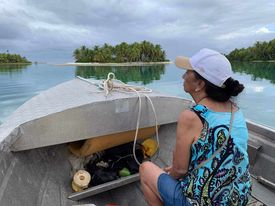In my reflective role as the Leader of the Opposition of the Cook Islands, I frequently ponder the untapped wealth and prospects of our smaller islands, particularly Rakahanga. With its abundant marine life and the promise of a thriving fishing industry, the island holds a treasure trove of opportunities for sustainable development. Today, I wish to shed light on the multifaceted strategies to establish a resilient commercial fishing sector in Rakahanga while addressing the pressing challenges of geographical distance, depopulation, and a transition to renewable energy.
1. Addressing Shipping Challenges:
Rakahanga’s geographical distance from Rarotonga, the center of commerce, poses a significant hurdle due to inconsistent shipping. To overcome this, we must advocate for improved and regular shipping services, explore alternative transportation means, and strengthen local supply chains, ensuring seamless connectivity and access to markets for our local produce.
2. Reversing Depopulation through Economic Opportunities:
The issue of depopulation hampers the island’s potential growth. By creating lucrative and sustainable economic opportunities within the fishing sector, we can incentivize residents to stay and attract former inhabitants to return, fostering a vibrant and thriving community.
3. Embracing Renewable Energy:
Complying with the Cook Islands Government’s Climate Change Policy 2018-2028, transitioning to renewable energy sources is imperative. Escalating diesel costs are straining the Island Councils Budget; hence, investing in sustainable energy solutions will not only mitigate financial stress but also contribute to environmental conservation.
4. Sustainable and Regulated Fishing Practices:
Ensuring the adoption of sustainable fishing methods and stringent regulation of foreign fishing licenses is crucial to preserving our marine biodiversity. This approach safeguards our fish stocks, particularly tuna, from depletion, thereby securing the livelihoods of our local fishermen and the future of Rakahanga’s fishing industry.
5. Diversification and Value Addition:
The development of diversified fish products, such as smoked fish and dried tuna jerky, coupled with investment in processing facilities, can significantly elevate the value of our produce. This diversification ensures increased revenue and enhances the resilience of our local businesses to market fluctuations.
Moving Forward:
In moving forward, addressing these key issues serves as a foundational stepping stone towards the realization of Rakahanga’s potential. Balancing our economic aspirations with our commitment to environmental stewardship and community well-being is pivotal. As we navigate the challenges and explore the myriad of opportunities, let us unite in our endeavor to cultivate a sustainable and prosperous future for Rakahanga and the broader Cook Islands.
Our shared vision should be one of resilience, sustainability, and community empowerment. By harnessing the blue wealth of Rakahanga through responsible practices, innovative solutions, and a commitment to our people and environment, we are paving the way for a brighter, greener future for our cherished Cook Islands.


